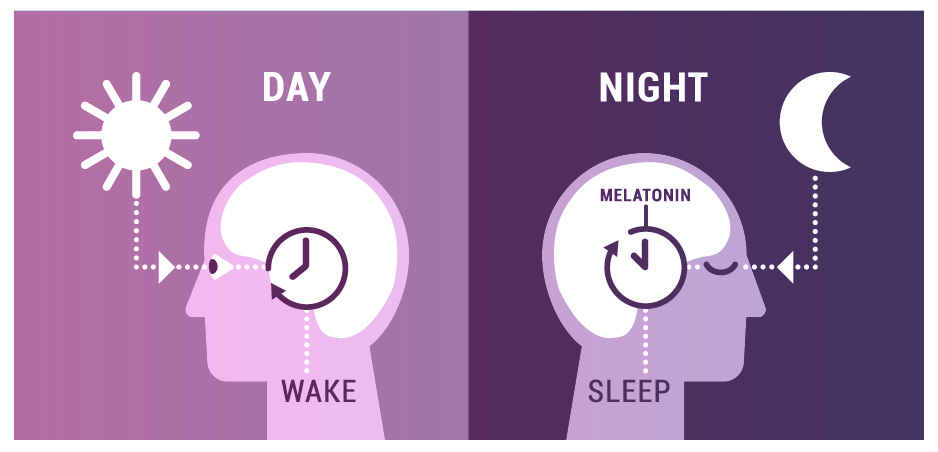
The Science Behind Sleep
An internal body clock regulates your sleep cycle, when you are ready for bed or when you are refreshed and alert. This clock operates on a 24-hour cycle known as the circadian rhythm.
Light also influences the circadian rhythm. The brain contains a special region of nerve cells known as the hypothalamus, and a cluster of cells in the hypothalamus called the suprachiasmatic nucleus, which processes signals when the eyes are exposed to natural or artificial light. These signals help the brain determine whether it is day or night.
As natural light disappears in the evening, the body will release melatonin, a hormone that induces drowsiness. When the sun rises in the morning, the body will release the hormone known as cortisol that promotes energy and alertness.
What is melatonin?
Melatonin is a hormone found naturally in the body.
The brain produces melatonin in response to darkness. Melatonin’s main job in the body is to regulate night and day cycles or sleep-awake cycles. Darkness causes the body to produce more melatonin, which signals the body to prepare for sleep. Light decreases melatonin production and signals the body to prepare for being awake. Some people who have trouble sleeping may have low levels of melatonin.
Melatonin works by controlling the circadian rhythms and increasing the propensity to sleep.

What are Circadian Rhythms?
Circadian rhythms are physical, mental, and behavioural changes that follow a 24-hour cycle. One of the most important and well-known circadian rhythms is the sleep-wake cycle.
Your circadian rhythm helps control your daily schedule for sleep and wakefulness. This rhythm is tied to your 24-hour body clock. Your Circadian Rhythm is influenced by outside things like light and dark, as well as other factors. Your brain receives signals based on your environment and activates certain hormones, alters your body temperature and regulates your metabolism to keep you alert or draw you to sleep.
Some of us may experience disruptions to our circadian rhythm because of external factors such as light from electronic devices. Maintaining healthy habits can help you respond better to this natural rhythm of your body.
